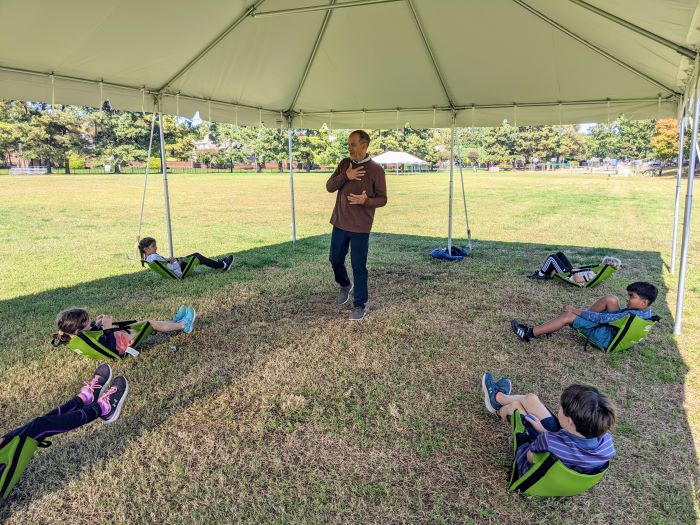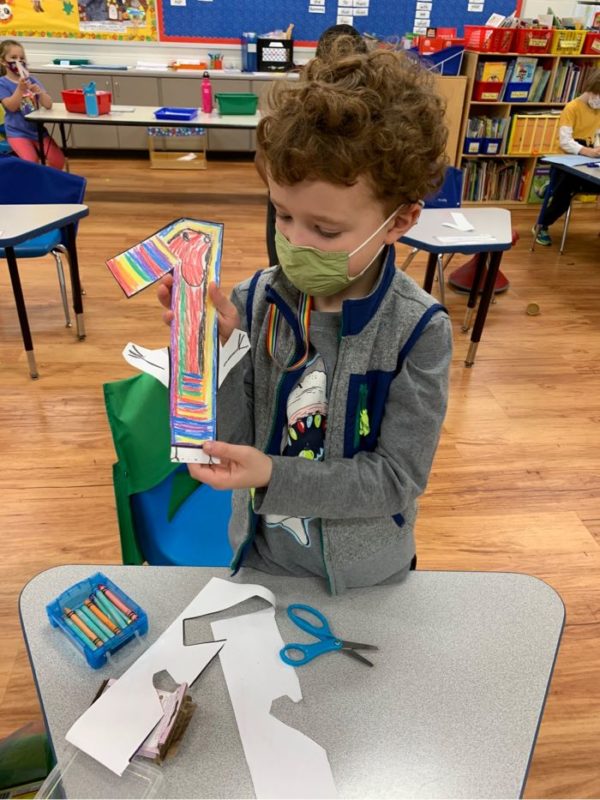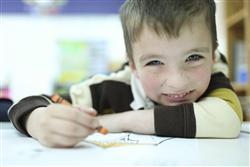Greensboro Day School: Focusing on Students’ Well Being
By Guest Bloggers Bridget Gwinnett, Chair, Counseling Department; Tracie Catlett, Head of School; and Geoff Campbell, Director of Strategic Initiatives
Do you think about your child’s well-being? We do, all of the time.
We want our children to feel safe – able to choose equilibrium over stress, learn the skills to manage the stress they choose, and to be able to recognize and process the stress they cannot refuse. It’s stressful to play the first violin in a concert seen by friends, family, and strangers. It is a choice, though, different from the stress caused by circumstances beyond your control, such as a world-altering pandemic. The challenge for kids today is to achieve well-being while managing the fear of the unknown, and then friendships, teacher relationships, academic challenges, and just getting along with family members who are going through the very same thing.
 When stress goes unmanaged, in creeps feelings of isolation. Ultimately we want to empower students to feel self-assured and say I am ok; I can’t do anything about this, I have a plan for that, and the other thing is going to be hard. It’s about control, knowing when you have it and when you don’t, and what to do in each situation.
When stress goes unmanaged, in creeps feelings of isolation. Ultimately we want to empower students to feel self-assured and say I am ok; I can’t do anything about this, I have a plan for that, and the other thing is going to be hard. It’s about control, knowing when you have it and when you don’t, and what to do in each situation.
Greensboro Day School has always prioritized student well-being. During a global pandemic, it’s no different, just more important. We have always provided students the skills and resources that make up the well-being toolkit, not for the first time but now more than ever, and we are giving them hands-on opportunities to use the tools in relevant ways.
Assembling the Tools and Resources
Greensboro Day School’s counseling program provides students with the tools students need to develop resilience, confidence, and strength of character. Three school counselors regularly meet with students and develop a social-emotional curriculum used across grade levels.
 Making the Most of Resources
Making the Most of Resources
Dave Mochel, Greensboro Day School’s Wellbeing Coach in Residence, is another primary resource available to students at GDS to round out their toolkit for healthy living. For a week in October, Greensboro Day School students, faculty, staff, and families reflected on the importance of well-being in a crisis, understanding that we all experience the emotional and physical strain of going through a stressful time. Dave’s message was clear: acceptance of those feelings is an essential step in resilience.
During his time on campus, Dave met with students in all divisions. Dave spoke to them about how our bodies experienced stress and taught them a few simple ways to handle that stress: deep breathing from the belly. This simple technique works with our parasympathetic nervous system to tell our bodies to calm and relax. Dave always brings us ways to establish and nurture a sense of well being. In the words of our Counseling Department chair, Bridget Gwinett, “Five days is is just not enough time with Dave!”
Another resource employed by the school is the data collected by our partners Authentic Connections. CEO and Co-founder Suniya Luthar identified student well-being as the next sweeping effect of the COVID-19 Pandemic. The data gleaned from student surveys and comparative looks at similar institutions helps us plan the programmatic steps to ensure that our students are ready for whatever is next.
 Using the Tools
Using the Tools
GDS has been thinking about re-entry since the beginning of the pandemic. It was quickly established that leaving for distance learning was a whole lot easier than coming back for in-person learning. In the summer, with small pods of students attending adapted Summer Programs, we considered several essential questions. How many students could we safely seat six feet apart in a classroom? How can we best utilize the outdoors for class, breaks, and lunch? Head of School, Tracie Catlett, asked student volunteers to help her answer these questions. Students worked hard to follow adapted working models to meet safety protocols, sought the feedback of their teachers and colleagues, and for a time, they were in control. This was an object lesson in resilience, well-being, and the ability to use every tool in the kit – it was important for what came next.
Once school opened in August, it was time to tackle new problems. Physical Distancing, the inability to safely use lockers, and gathering at lunch in group sizes that were protocol-appropriate were among those challenges. This time Catlett created a Challenges, Solutions, Ideas (CSI) team for students to sort through their friend’s concerns. To sort through volunteers, we asked them why they wanted to join the CSI student team, and the answers were thoughtful and earnest.
 Recognition, awareness, and acceptance, followed by access to the tools and resources to recognize the opportunities to apply the knowledge, is one way to ensure well-being. Giving kids what they need and giving them a chance to use their understanding is what we do at GDS, whether it’s Mathematics or Well-being.
Recognition, awareness, and acceptance, followed by access to the tools and resources to recognize the opportunities to apply the knowledge, is one way to ensure well-being. Giving kids what they need and giving them a chance to use their understanding is what we do at GDS, whether it’s Mathematics or Well-being.
To learn more about how Greensboro Day School focuses on student well being, attend the virtual Open House on Sunday, December 6. Register at greensboroday.org/rsvp.
Sponsored by Greensboro Day School

![[Clothes Hanging Storage Organizer] - Our hanging closet organizer comes with 2 sets of weekly labels in different colors, so you can choose according to your preference. There are 6 shelves of open storage space for easy access to clothes. Specially...](https://m.media-amazon.com/images/I/41Bjs3vGEcL._SL160_.jpg)


































